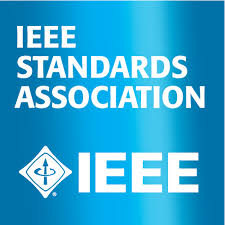
ROBOLAW.ASIA Research
Robot Law and Ethics
Since 2004, the Japanese Ministry of Economy, Trade and Industry has published a series of Robot Policy Guidelines which address business and safety issues for “Next Generation Robots”. They predicted a “Human-Robot Coexistence Society” that will emerge by 2030. However, it is a step-by-step gradual process for these robots entering into the everyday lives of people. We believe that intelligent robots will be the next revolutionary technology after PCs and the Internet. Therefore, we established ROBOLAW.ASIA Initiative to investigate the intersection between artificial intelligence & law. Our main objective is to minimize risks from robots into an acceptable range.
An emerging problem might be whether we should consider addressing new regulation impact on service robots. Under the current legal system, service robots are merely a property or “the second existence”; it is not enough to protect safety and moral risks in regards to human-robot co-existence. In other words, the new perspective of regulation shall be established under the premise of service robots as “the third existence” legal entity; robots are still the object of law, and they shall have a special legal status different from normal machines. However, the difficulty of implementing new regulations for service robots is something similar to the case of regulating steam powered cars in the 19th century. It’s a “Regulation of Unknown”. On one hand, such machines could cause deadly consequences to human beings without proper regulation. On the other hand, it is difficult for regulators to keep up with the progress of advanced technology. Therefore, thereis a tendency for over-regulation, similar to the case of the steam powered cars in the past.
To avoid repeating the Red Flag Laws in the era of intelligent robots, we can first consider “Deregulation” while referring the “Tokku” RT special zone. A special area such as this one can help regulators and manufacturers identify many unexpected risks during the final stage prior to the robots' practical application. Originated from Japan, the history of RT special zone is merely 10 years long, but there are already many special zones established in Fukuoka, Osaka, Gifu, Kanagawa and Tsukuba. As the development of robotics and its acceptance to society expand, the importance of special zones as an interface for robots and society will be more apparent.
Furthermore, we need to be aware of the importance of public law and regulation. While it does not refer to the debate on issues of robot rights or robots to be recognized as the subject of law from the Constitution, it does mention making public regulation for the design, manufacture, selling, and usage of advanced robotics. A possibility could be developing the “Robot Safety Governance Act”, which is the extension of current machine safety regulations. These technical norms located at the bottom of “Robot Law” will ensure the safety of new human-robot co-existence.
Finally, robot ethics and legal regulation should not always be in parallel, because from the regulation perspective, robot law is an intersection of robot ethics and robotics. We might don’t need Red Flag Laws for Pepper robots, but it depends on what moral stands and actions we take toward the regulation of unknown.
Contribution:
01. Yueh-Hsuan Weng (2018) The Ideal and the Reality of Human-Robot Co-Existence: “Tokku” RT Special Zone and Red Flag Laws, Kuu-young Young et al. (Eds.), Technology, Humans, and Society 3, Page 61-72, NCTU Press, ISBN: 9789869477260 [LINK]
02. Yueh-Hsuan Weng (2017) Towards Integrated Governance for Intelligent Robots: A Focus on Social System Design, Special Issue on AI & Law, Jusletter IT 23 Nov. 2017, Weblaw (Bern), ISSN 1424-7410 [LINK]
03. Yueh-Hsuan Weng (2017) The Future of Work: A Brief Look to Legal Impacts to Automation and Labor Force, in Proceedings of 2017 KLRI Legal Scholars Roundtable: How Law Operates in the Wired Society, JW Marriott Hotel Seoul, Korea Legal Research Institute, September 21-22 [LINK]
02. Yueh-Hsuan Weng (2017) Case Study: Bad Actors and Service Robots, FHI-CESR-CFI Workshop on Bad Actors and Artificial Intelligence, 14:45-15:00, Littlegate House, Oxford, February 19th-20th 2017 [LINK]
03. Yueh-Hsuan Weng (2016) Robot Law 1.0: On Social System Design for Artificial Intelligence, 13:00-14:00, Small Moot Court, room 723, 7/F, Cheng Yu Tung Tower, Faculty of Law, The University of Hong Kong, January 16th 2017 [LINK]
04. Yueh-Hsuan Weng (2016) Regulation of Unknown: A Lesson from Japan’s Public Law and Policy for Next-Generation Robots, 1st Annual Conference of the Center for Law and Internet (CLI) Session: Ethics and technology, 15:20-16:30, West-Indisch Huis Amsterdam, November 17th 2016 [LINK]
05. Mady Delvaux-Stehres and Yueh-Hsuan Weng (2016) A European perspective on robot law: Interview with Mady Delvaux-Stehres, TECH and LAW Center & Robohub [LINK]
06. Yueh-Hsuan Weng (2016) Regulation of Unknown: A Lesson from Japan’s Public Law and Policy for Next-Generation Robots, 12:30-13:30, Room 623, 6/F, Cheng Yu Tung Tower, Faculty of Law, The University of Hong Kong, January 28th 2016 [LINK]
07. Christof Heyns, Gurvinder S. Virk, Yueh-Hsuan Weng (2015) An Exclusive Interview with UN and ISO experts in Robots and Regulation, TECH and LAW Center [LINK]
08. Yueh-Hsuan Weng (2015) O Direito para Robôs: A Regulação do Direito Robótico no Direito Público do Japão, 10:30-12:30, Sala de Vídeoconferência - 3° andar, UFPR - Universidade Federal do Paraná, Curitiba, November 20th 2015 [LINK]
09. Yueh-Hsuan Weng (2015) Regulation of Unknown: Does the Humanoid Robot “PEPPER” need Red Flag Laws?, TECH and LAW Center [LINK]
10. Yueh-Hsuan Weng (2015) Japan’s Robot Policy and the Special Zone for Regulating Next Generation Robots, TECH and LAW Center [LINK]
Figure 1. Risk Monitoring Mechanism: For short term consideration, a passive measurement to monitor the Open-Texture Risk.
Figure 2. Risk Control Mechanism: For Long term consideration, using active measurement to absorb the Open-Texture Risk.
11. Yueh-Hsuan Weng (2015) Japanese Public Policy for Robots and Regulation: An Example of "Tokku" Special Zone, 11:00-13:00, Sala Mansarda, Villa Schifanoia, European University Institute, Florence, April 28th 2015 [LINK]
12. Yueh-Hsuan Weng (2015) Robots and Society: On the Intersection of Special Zone, Robots, and the Law, 10:30-11:30, Via dei Barucci n° 20, ITTIG-CNR, Florence, March 26th 2015 [LINK]
13. Yueh-Hsuan Weng, Yusuke Sugahara, Kenji Hashimoto, Atsuo Takanishi (2015) Intersection of “Tokku” Special Zone, Robots, and the Law: A Case Study on Legal Impacts to Humanoid Robots, International Journal of Social Robotics, Vol. 7, No. 5, Page 841-857, Springer Netherlandsa [LINK]
14. Yueh-Hsuan Weng, Gurvinder S. Virk, Shuping Yang (2015) The Safety for Human-Robot Co-Existing: On New ISO 13482 Safety Standard for Service Robots, Internet Law Review, Vol. 17, Page 229-244, Peking University Press [LINK]
15. Yueh-Hsuan Weng (2014) Introduction to Applications and Challenges of Emerging Technologies, Master Course: The Laws of Cyberspace, 10:00-12:00, Room 121, TSMC Building, National Tsing Hua University, Hsinchu, December 11th 2014
16. Yueh-Hsuan Weng, Dominic Hillenbrand (2014) The Intelligentization of Automobiles: Smart-Cars, Robo-Cars and their Safety Governance, Journal of Science, Technology and Law (STL), No.4, General Issue 110, Page 632-646, 2014 [LINK]
17. Yueh-Hsuan Weng (2014) The Study of Safety Governance for Service Robots: On Open-Texture Risk, Ph.D. Dissertation, Peking University Law School, Beijing, May, 2014 [LINK]
18. Yueh-Hsuan Weng (2014) A Review on Military Robots and Warfare, PKU Internet Law Watch, Vol. 10, No. 4
19. Yueh-Hsuan Weng (2014) The Robot - Technology, Ethics and Law, PKU Internet Law Watch, Vol. 10, No. 3
20. Yueh-Hsuan Weng (2014) Robots - A Historical Review, PKU Internet Law Watch, Vol. 10, No. 2
21. Yueh-Hsuan Weng (2013) Special Interview on “Robot Law in Europe” - with Prof. Dr. Eric Hilgendorf, ROBOLAW.ASIA Initiative [LINK]
22. Yueh-Hsuan Weng (2013) Special Interview on “Law and Drone Warfare” - with Prof. Dr. Christof Heyns
, ROBOLAW.ASIA Initiative [LINK]
23. Yueh-Hsuan Weng, Sophie T.H. Zhao (2012) The Legal Challenges of Networked Robotics: From the Safety Intelligence Perspective, M. Palmirani et al. (Eds.), Lecture Notes in Computer Science(LNCS): AI Approaches to the Complexity of Legal Systems, Vol. 7639, Page 61-72, Springer Berlin Heidelberg [LINK]
24. Yueh-Hsuan Weng (2012-2014) Supporting External Network, EU FP7 Project: ROBOLAW, Scuola Superiore Sant’Anna, Pisa, Italy, June 2012 - September 2014 [LINK]
25. Yueh-Hsuan Weng (2012) Yahoo! Research Grant, “The Internet of Things and Automation: Legislation and Policy Research”, PKU-Yahoo! Internet Law Center
26. Yueh-Hsuan Weng (2012) (1) The Internet of Things and Automation: Overlapping the Real and Virtual Worlds, PKU Internet Law Watch, Vol. 8, No. 5
27. Yueh-Hsuan Weng (2012) (2) Intelligent Transportation: Addressing the Liability Impact of Automated Systems: with Prof. Dr. Giovanni Sartor and Dr. Giuseppe Contissa, PKU Internet Law Watch, Vol. 8, No. 5
28. Yueh-Hsuan Weng (2012) (4) Social Robots: Robot Companions for Citizens: with Prof. Dr. Paolo Dario, PKU Internet Law Watch, Vol. 8, No. 5
29. Yueh-Hsuan Weng (2012) Law & Networked Robotics: Some legal Issues on the Internet of Things, Aula 6, 12:00-15:00, SSSA Seminar, Scuola Superiore Sant’Anna, Pisa, June 6th 2012
30. Yueh-Hsuan Weng, Sophie T.H. Zhao (2011) The Legal Challenges of Networked Robotics: From the Safety Intelligence Perspective, XXV. IVR World Congress on Philosophy of Law and Social Philosophy Special Workshop on AICOL, (16:00~16:20) Room HZ 8, Building N.4, Goethe-Universität Frankfurt, Frankfurt am Main, 15th August 2011 [LINK]
31. Yueh-Hsuan Weng (2011) Networked Robots: A Brief Look at Its Possible Legal Implications, IEEE International Conference on Robotics and Automation (IEEE ICRA’11) Workshop on Roboethics, (16:30~17:00) Room 5B, SHICC, Shanghai, 13th May 2011 [PDF]
32. Yueh-Hsuan Weng (2011) The Open-Texture Risk in the Human-Robot Co-Existence Society: A Review on “Open Robotics”, Internet Law Review, Vol. 13, Peking University Press [LINK]
33. Yueh-Hsuan Weng (2009) Toward The Human-Robot Co-Existence Society: On Legislative Consortium for Social Robotics, IEEE International Conference on Robotics and Automation (IEEE ICRA’09) Workshop on Legal and Safety Issues Related to Autonomous Networked Robots Operating in Urban Environments, (10:40~11:05) Room 404, Kobe International Convention Center, Kobe, 13th May 2009 [LINK]
34. Yueh-Hsuan Weng, Chien-Hsun Chen and Cheun-Tsai Sun (2007) The Legal Crisis of Next Generation Robots: On Safety Intelligence, Paper presented on The Eleventh International Conference on Artificial Intelligence and Law (ICAIL'07). Stanford Law School, Palo Alto, California, USA [ Acceptance Rate: 26% ] [PDF]





